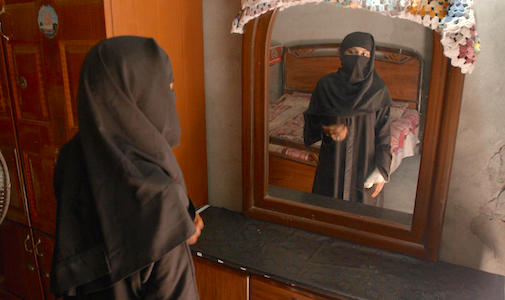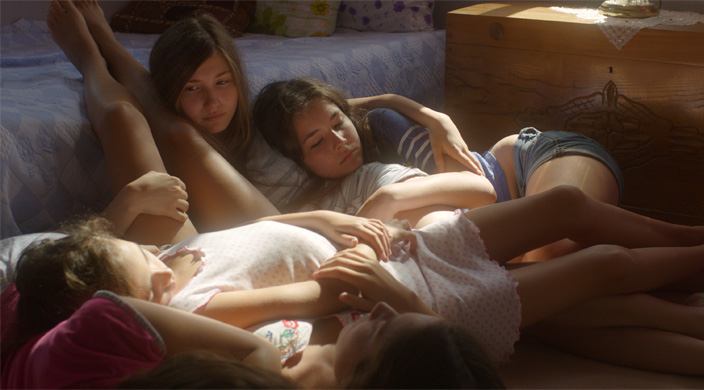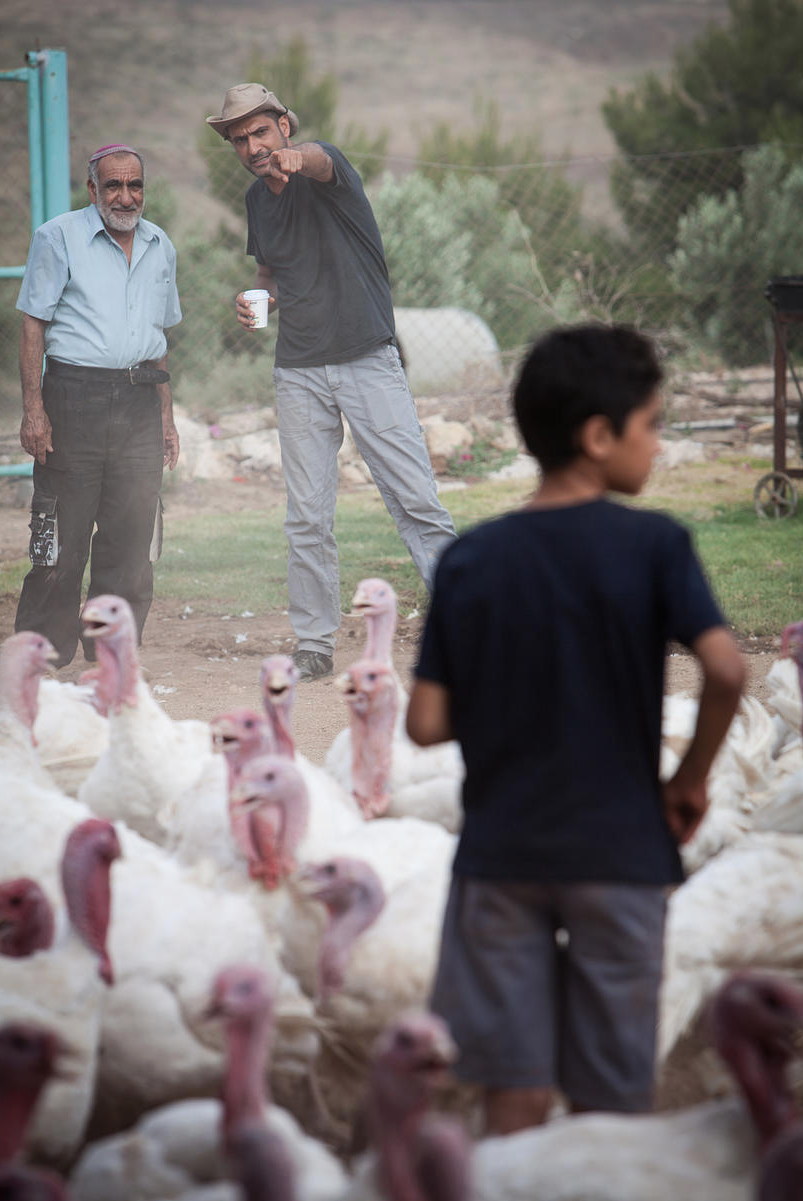 on the set of Baba JoonAmir files our last TIFF report on three films, one of them hoping for Oscar...
on the set of Baba JoonAmir files our last TIFF report on three films, one of them hoping for Oscar...
Baba Joon (Israel)
Israel’s Oscar submission is quite a unique experience: the lives of Iranian Jews who have left their homeland to live in Israel—and are consequently not allowed to re-enter Iran because of the two countries’ bitter relationship has never been portrayed on screen. In Yuval Delshad’s debut feature, the titular character and his clan—a son, his wife and their son—all live on a small turkey farm in rural Israel and live with very modest means. The tensions between multiple generations of the family, and the melancholia of living at once at home and away from home are the film’s central themes.
Baba Joon’s storytelling and the emotional beats are familiar. There is nothing in the strained father-son dynamics, troubled by decades of repression, that we haven’t previously seen on the big screen. The film’s abrupt but rather predictable ending lends it a saccharine flavour that might sit well with the Academy, but undermines the film. When the story’s resolution is presented so neatly with a gift wrap, very little is left for the audience to ponder. Still, this is a heartfelt film of genuinely well intentions, with a sizable novelty factor, whose fresh look at ethnic minorities in the Middle East is quietly delightful.
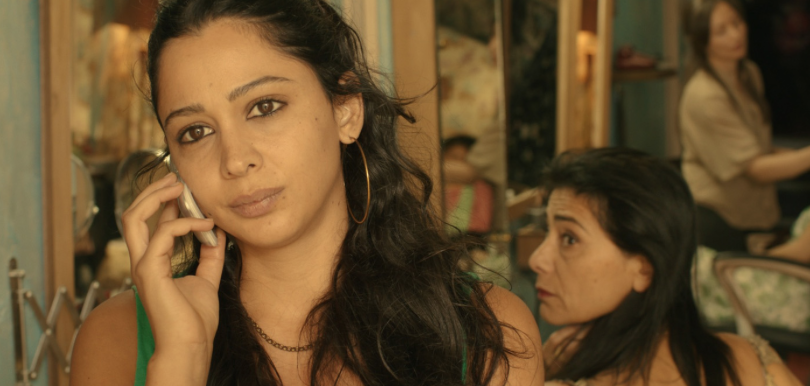
Dégradé (Palestine/France/Qatar)
This debut film from eccentrically named brothers Arab and Tarzan Nasser, shows similar irreverence in depicting ethnic tensions with Israel. Part Almodovar-esque comedy of women on the verge of nervous breakdowns, part a thriller revolving a hostage situation, their film, which stars Hiam Abbas and Maisa Abd Elhadi, is based in a hair salon in Gaza, where the clientele hail from different social, religious and political backgrounds. As they wait their turns to be beautified, the salon becomes increasingly like a microcosm of Gaza’s society, and the world beyond the confines of the building is engulfed in violence.
Dégradé is an interesting look at life in the occupied territories because it broadens the conversation beyond the Israel-Palestine binary. In the film’s view, the community is rife with tensions and chasms, all exacerbated by the atrocious limitations of living in occupation. Yet, the image is much richer and layered than normally shown on screen, breaking the monolithic view of Palestinians in favour of a more complex perspective. That the film manages to convey these intricacies while remaining consistently entertaining is a significant accomplishment, and one that promises much more from the filmmaking duo.
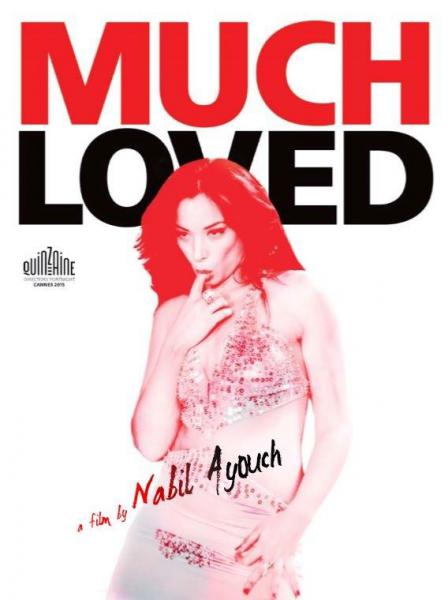 Much Loved (Morocco/France)
Much Loved (Morocco/France)
The most daring film among the bunch comes from the more experienced hands of Moroccan director Nabil Ayouch. Ayouch surveys the night club scene in Marrakech, a world filled with sex, drugs and rampant decadence. Home to tourists from Saudi Arabia and Europe, the city’s nightlife is bustling and its sex industry is ever active, almost completely removed from the crisis-ridden country that surrounds it. Almost. Following Noha (Loubna Abidar) and her entourage of less experienced escorts, Much Loved is as intimate a film as it is provocative.
Ayouch has had to field a lot of controversy, mostly due to the explicit displays of sex in his film; and while the murky release prospects of the film in the Arab world are understandable, it’s unfortunate if sex becomes the only talking point. This is the rare film that intertwines the lives of sex workers with socio-economic issues without becoming patronizing. Morocco’s complicated relationships with Europe and other Arab countries, and its tenuous political situation are subtly worked into the plot of the film. It’s intimate and superbly acted—mostly by amateur performers— and a film that's heartbreaking, humorous and evocative in equal measure. In a festival that is never short on big films from big directors, Much Loved was a true discovery.
 Thursday, February 25, 2016 at 10:30AM
Thursday, February 25, 2016 at 10:30AM  Eric Blume reporting for duty. We hadn't yet reviewed the short film Oscar nominees so I binged all 15 of this week. Many minds and bladders wander away from the Oscar telecast during these three categories. Even those of us who claim we’ve “seen everything” have rarely seen all of the entries in the three shorts fields. But pay attention because these winners can bring some of the best moments of the show: remember the 1991 show when producer Debra Chasnoff won for Documentary Short Subject for the General Electric expose Deadly Deception? She got to the podium and said “boycott GE!” with a cut to Barbra Streisand smiling and clapping with Kevin Costner right behind her decidedly smiling and not clapping. We Oscar lovers live for moments like this.
Eric Blume reporting for duty. We hadn't yet reviewed the short film Oscar nominees so I binged all 15 of this week. Many minds and bladders wander away from the Oscar telecast during these three categories. Even those of us who claim we’ve “seen everything” have rarely seen all of the entries in the three shorts fields. But pay attention because these winners can bring some of the best moments of the show: remember the 1991 show when producer Debra Chasnoff won for Documentary Short Subject for the General Electric expose Deadly Deception? She got to the podium and said “boycott GE!” with a cut to Barbra Streisand smiling and clapping with Kevin Costner right behind her decidedly smiling and not clapping. We Oscar lovers live for moments like this.
